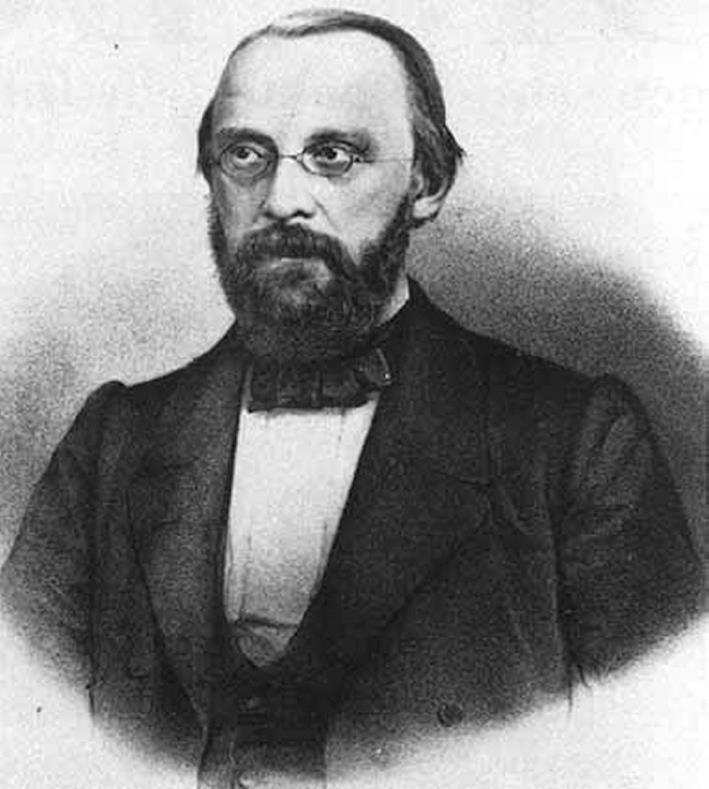Copyright
©2013 Baishideng.
Figure 4 Rudolph Virchow (1821-1902).
Born in Germany in 1821, he studied medicine and chemistry in Berlin at the Prussian Military Academy from 1839 to 1843. After graduation in 1843, he went to serve as assistant at the Charité Hospital. In 1847, he qualified as a lecturer at the University of Berlin and participated in founding the “Archiv für pathologische anatomie und physiologie and für klinische medizin”. Virchow is credited with multiple important discoveries. Besides his role in recognizing leukemic cells, he was one of the first to accept the work of Robert Remak who showed that the origin of cells was the division of preexisting cells. He also described that an enlarged left supra-clavicular node is one of the earliest signs of gastrointestinal malignancy. He elucidated the mechanism of pulmonary thromboembolism and founded the medical fields of cellular pathology and comparative pathology. He also developed a standard method of autopsy procedure. In 1861, he was elected a foreign member of the Royal Swedish Academy of Sciences. In 1862, he was awarded the Copley Medal. In 1869 Virchow founded the Society of anthropology, ethnology and prehistory which was very influential in coordinating German archaeological research[55,56]. More than a laboratory physician, Virchow was an impassioned advocate for social and political reform. He made himself known as a pronounced democrat in the year of revolution, 1848, and his political activity caused the government to remove him from his position. In 1859, he became a member of the Municipal Council of Berlin, and began his career as a civic reformer. Elected to the Prussian Diet in 1862, he became leader of the Radical or Progressive party, and from 1880 to 1893 he was a member of the Reichstag. He is widely regarded as a pioneer of “social medicine”, focusing on the fact that disease is never purely biological, but often socially derived or spread[57]. Virchow died of heart failure in 1902.
- Citation: Thomas X. First contributors in the history of leukemia. World J Hematol 2013; 2(3): 62-70
- URL: https://www.wjgnet.com/2218-6204/full/v2/i3/62.htm
- DOI: https://dx.doi.org/10.5315/wjh.v2.i3.62









